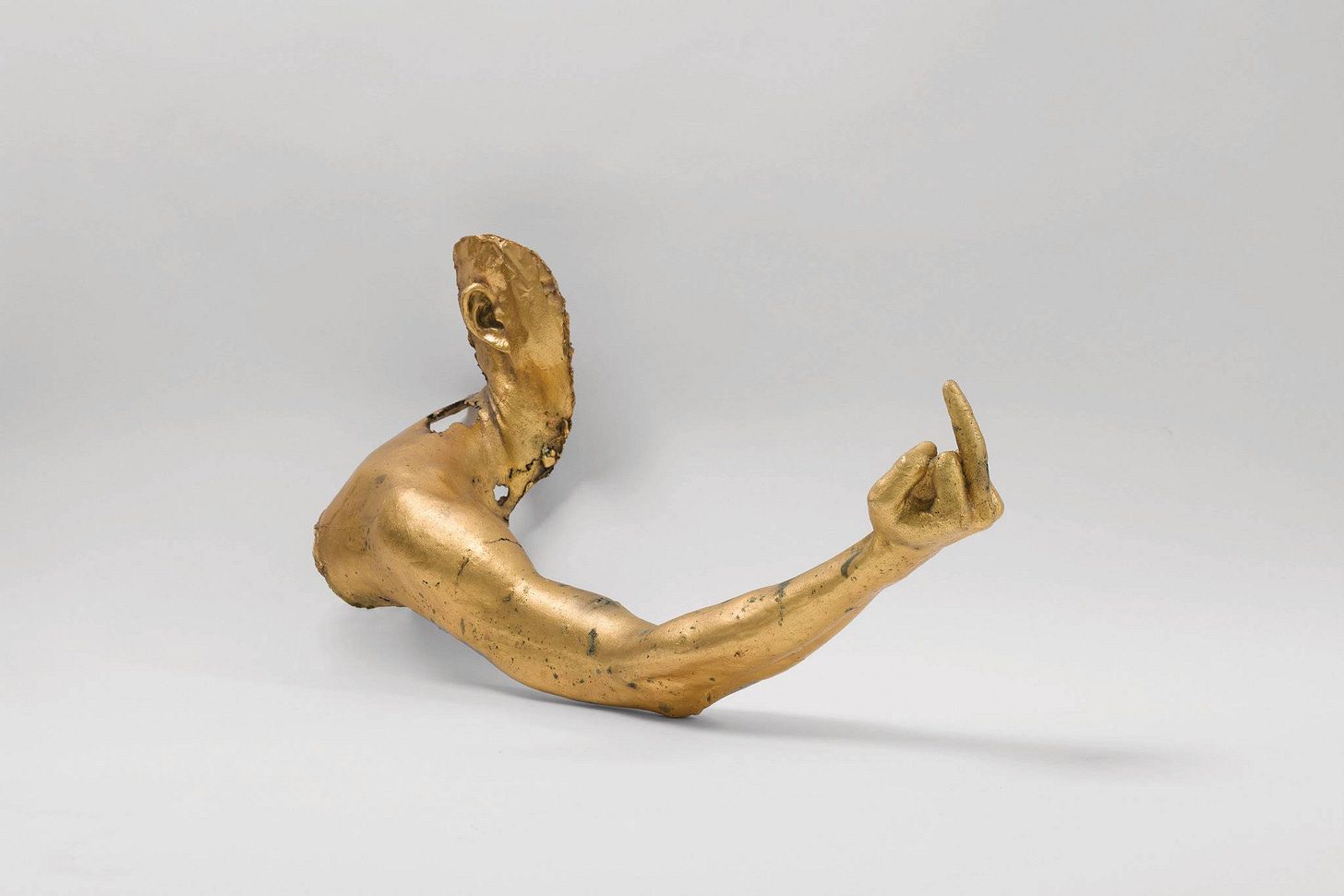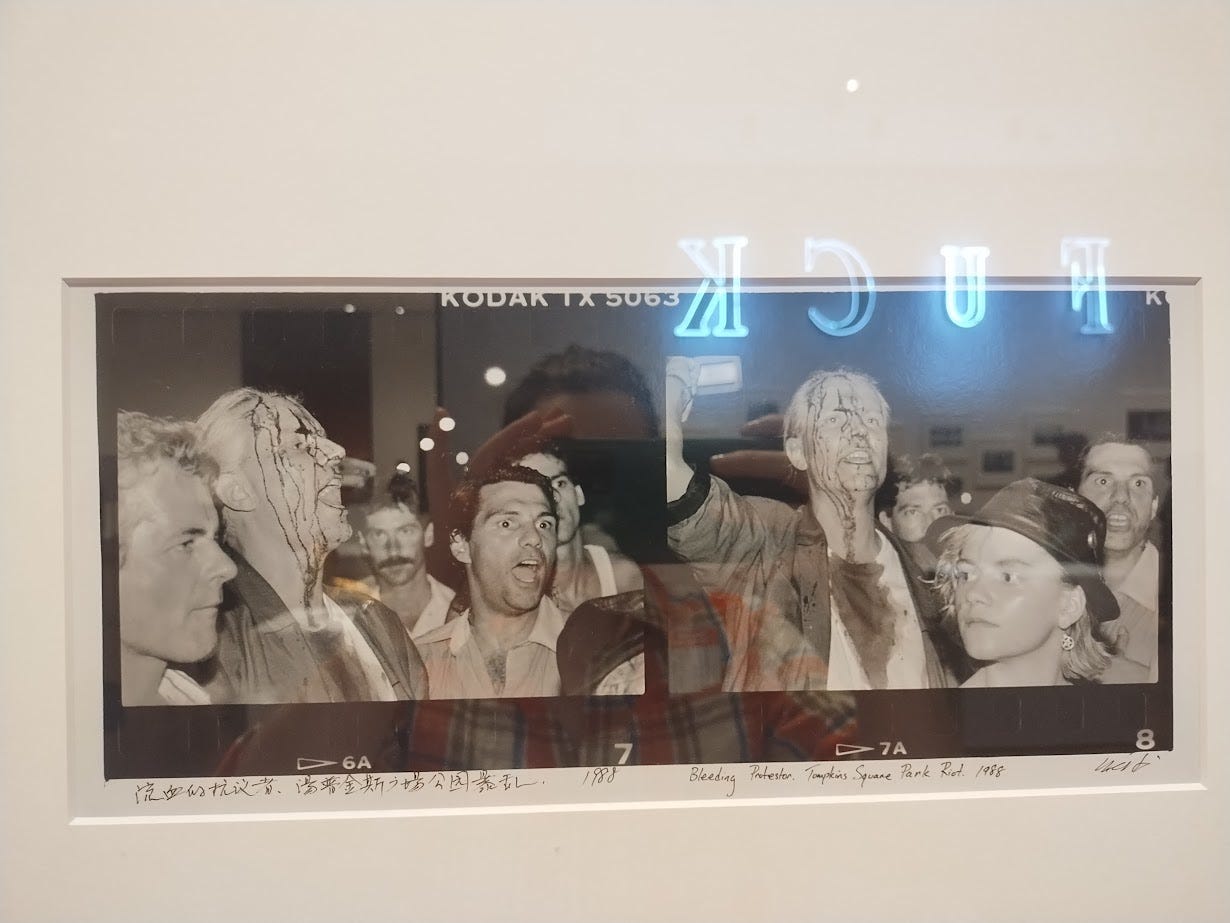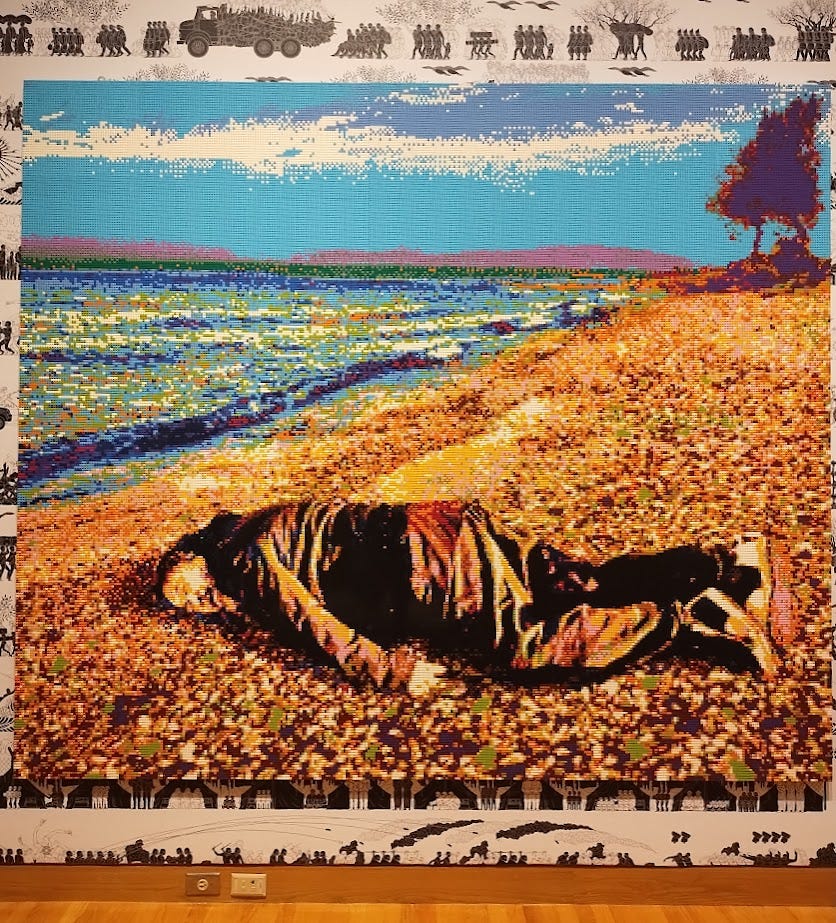
It may seem random, but I swear there is a plan to this Substack. In fact, I was feeling pretty clever for managing to tie-in current events to my post about trolling and then to follow it up with a counterargument about the mischievous work of Chinese dissident artist, Ai Weiwei.
I’d planned my day to get to the Seattle Art Museum around 11:00, have an hour or two with the special exhibit, Ai, Rebel, eat lunch, and do some Father’s Day shopping around Pike Place Market before I had to be home at 2:45pm when my son’s school bus dropped him home.
But I plan and God laughs. I got to SAM only to realize I needed a timed ticket to enter the special exhibit. The soonest they could get me in was 12:40. I got my ticket, ate my lunch, and toured some of the ancient Chinese art, hoping to gain context about what I was about to see.
When it was finally time for me to enter the special exhibit, my ticket was nowhere to be found.
I searched my pockets, I backtracked, I went to the front desk and asked them to reprint my ticket. They couldn’t. Best they could do was to offer me a ticket for the next slot: 1:40.
I kept it together, gathered my things from bag check, and exited the museum. Then I slid my sunglasses on and burst into tears as I walked through downtown Seattle.
I was mad at myself for losing my ticket, mad at the front desk for not replacing it. But more than that, I was overcome by frustration at my own helplessness before a seemingly irrational policy.
And then I realized I wasn’t really crying about the special exhibit—I was crying about my mom.
My mom is an alcoholic, and, despite years of attempts to get her the appropriate help, she seems determined to go out drinking. I’ve bought books and called helplines. My family has consulted doctors, therapists, and social workers, without much to show for it.
While the medical and legal establishments are hellbent on stopping folks from purposely overdosing on pills or jumping off bridges, the truth is, if you want to kill yourself gradually, via legal means, nobody will do anything lest they impinge on your “freedom.”
I cried because I am tired of faceless institutions with inhumane policies. I am tired of living in a country that dismantled its inpatient mental healthcare system and replaced it with a big, fat nothing. I’m worn out by a culture that places money at its center rather than care. I cried because this situation is awful and there’s absolutely nothing I can do about it.
Listening to Phoebe Bridgers on my earbuds and with my sunglasses concealing my red eyes, I finished my Father’s Day shopping, stopping off at a cigar store where the thickly accented clerk noticed my dour expression and asked me how I was doing.
“I’m okay,” I replied.
“Long day, huh?”
I nodded.
It was a short interaction, but it meant something just to be witnessed. For another human, even a stranger, to see some part of my distress and offer me a sip of empathy.
After shopping, I decided to rally and go back for Ai, Rebel, even though I’d only have 30 minutes or so before I had to leave.
I’m glad I went. Ai’s use of absurdity and humor in the face of trauma is something I try to channel in my writing. I thought about the trolling piece I’d just written asked myself what the difference was between Ai’s provocative work and trolling? Is Ai just trolling the Chinese Communist Party? Aren’t the trolls and Ai just trying to get a rise out of us?
I think there are two differences: scale and humanity. The question is who is the target of your provocation and why? Internet trolling is often contextless—it’s razzing strangers because their comments appear to disagree with yours. Ai’s work is contextual: it draws on shared history and symbolism; it provokes in order to point us back to our humanity.
Whether it was his work as a young photographer documenting the ACT UP protests in NYC or his Lego self-portrait as drowned refugee child, Alan Kurdi, he is showing the real human pain that our governments and consumer culture want to gloss over.
In a way, my grief felt of a piece with the exhibit. In a single afternoon I had felt both the sting of being unseen and the salve of having my vulnerability witnessed.
Ai’s work shows us that even if we cannot personally dismantle unjust systems, we are never powerless as long as we can speak out. As long as we can keep pointing to each other’s humanity, we have power.
BONUS MATERIALS:
- and I were on similar wavelengths this week. Read his great account of what’s happening in LA here: Art in the War on Fascism - The In-Between
this story about the history of ACT UP protests has something to teach us
here’s a preview of the documentary that first made me fall in love with Ai Weiwei’s work






"In a single afternoon I had felt both the sting of being unseen and the salve of having my vulnerability witnessed." <- love this. And I so relate to the frustration of arbitrary policies. Maddening.
"I cried because I am tired of faceless institutions with inhumane policies. I am tired of living in a country that dismantled its inpatient mental healthcare system and replaced it with a big, fat nothing. I’m worn out by a culture that places money at its center rather than care." All of this. So much. Thank you for naming it, and for pointing to the power of being seen in the midst.